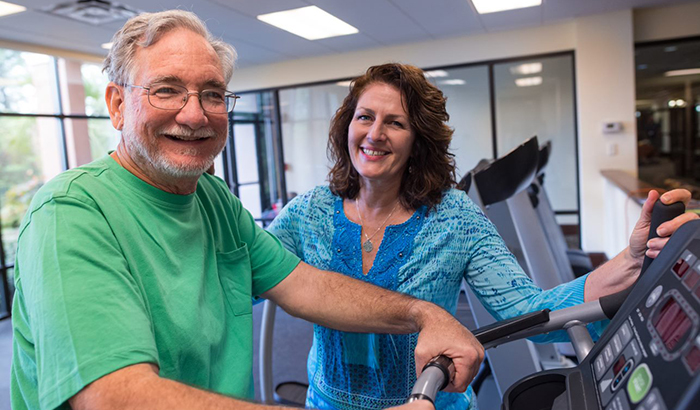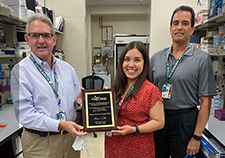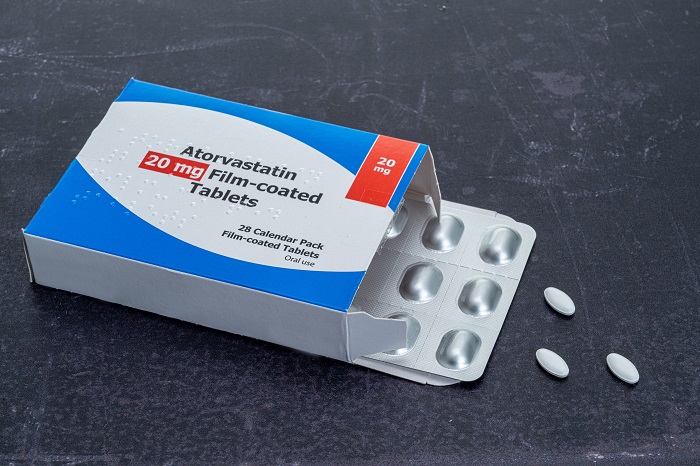Office of Research & Development |
 |


Cardiac rehab after a heart attack or bypass surgery has been shown to increase survival. (Photo for illustrative purposes only. ©iStock/juanmonino)
April 8, 2020
Tristan Horrom
VA Research Communications
The study looked at coronary revascularizations because they are among the higher-cost cardiovascular procedures.
VA and non-VA cardiac rehabilitation programs offer similar benefits, found a VA Quality Enhancement Research Initiative (QUERI) study. “Eligible patients with ischemic heart disease should participate in cardiac rehabilitation programs regardless of where they are provided,” said study author Dr. Mary A. Whooley of the San Francisco VA Health Care System and the University of California, San Francisco.

VA Study Documents Health Risks for Burn Pit Exposures

VA center training the next generation of researchers in blood clots and inflammation

Could cholesterol medicine reduce dementia risk in seniors?

Million Veteran Program director speaks at international forum
The results appeared March 20, 2020, in JAMA Network Open.
Previous studies have shown that cardiac rehab after a heart attack or bypass surgery lowers risk of death. Both the American Heart Association and the American College of Cardiology recommend patients with heart disease be referred to cardiac rehabilitation after hospitalization. Cardiac rehab programs mostly consist of heart-healthy exercise programs.
Despite these recommendations, participation in VA cardiac rehab programs has been low. The main reasons are that many Veterans live far from VA facilities, and not all VA centers offer cardiac rehab.
For these reasons, many VA heart patients are referred to outside programs. More Veterans receive this type of rehab outside of VA than in it. The number of Veterans participating in non-VA cardiac rehab has steadily increased in recent years with the push to offer Veterans access to community care.
To gauge how VA and non-VA cardiac rehab programs compare, researchers studied outcomes for patients who were hospitalized at VA hospitals for a heart attack or bypass surgery. They collected data on more than 7,000 patients who participated in at least two sessions of rehab between 2010 and 2014.
About 40% of participants attended rehab through VA. The other 60% participated in a private-sector rehab program. Both groups had similar rates of death and rehospitalization one year after their initial hospitalization.
Of patients receiving VA rehab, 1.7% died in the first year. For the non-VA group, the mortality rate was 1.3%. The VA group had a rate of 4.9% readmission to the hospital, while 4.4% of the non-VA group had to return to the hospital. The researchers say the differences were not statistically significant for either measure.
The results show that quality of rehab is similar across VA and outside health care systems. The researchers hope that the findings will encourage greater referral of eligible patients to cardiac rehab, either in VA or outside.
While the results are encouraging, there is some cause for concern. During the study period, more than 84,000 patients were hospitalized for heart attack or bypass surgery. Only 8.7% of those attended cardiac rehab afterward.
This finding highlights the need to redouble efforts to increase cardiac rehab participation, say the researchers. In previous research, the same research team found that implementing home-based cardiac rehab programs quadrupled participation. They partnered with Dr. Richard Schofield, the VA national program director for cardiology, to distribute a statement encouraging VA facilities to implement home-based cardiac rehab programs. The researchers will continue to measure patient participation in these programs going forward.
VA Research Currents archives || Sign up for VA Research updates